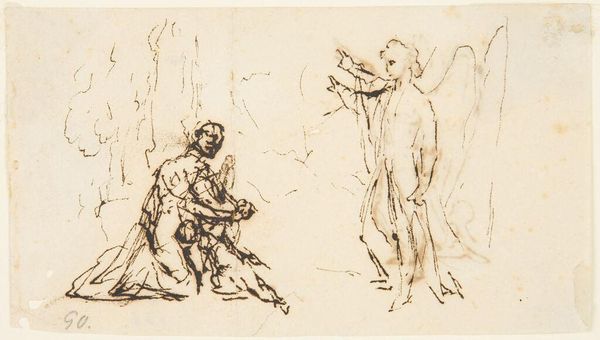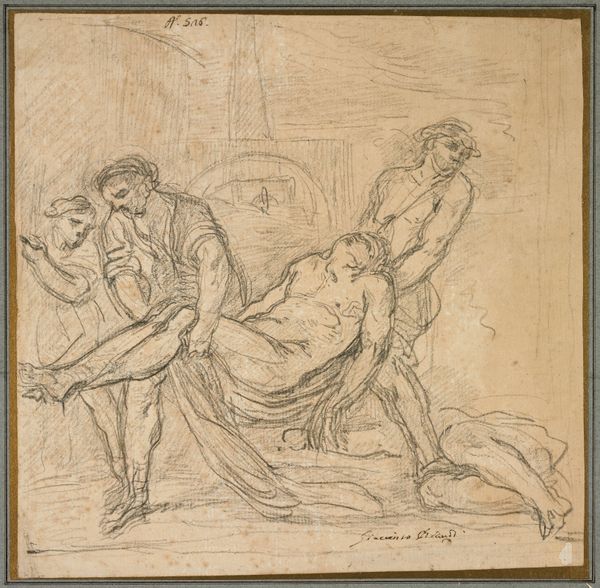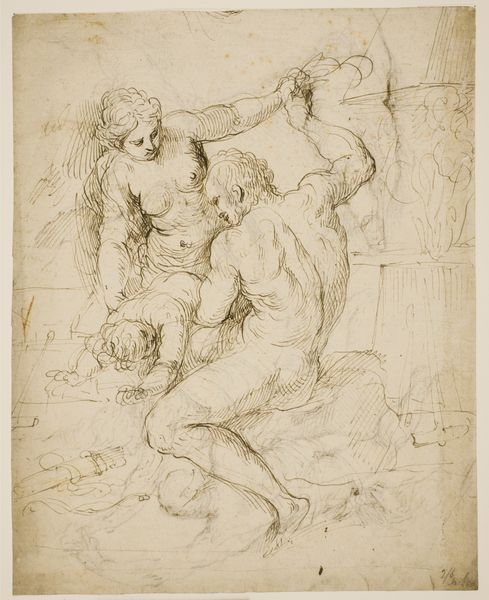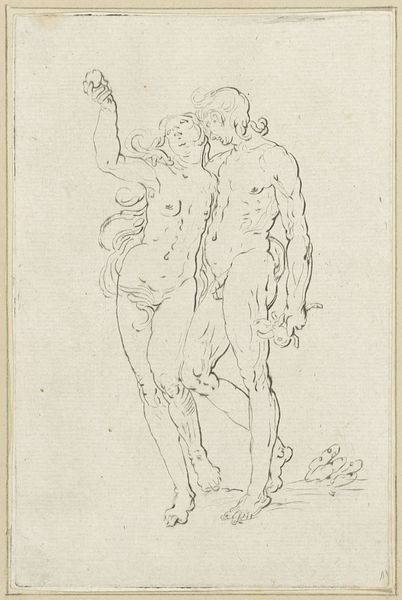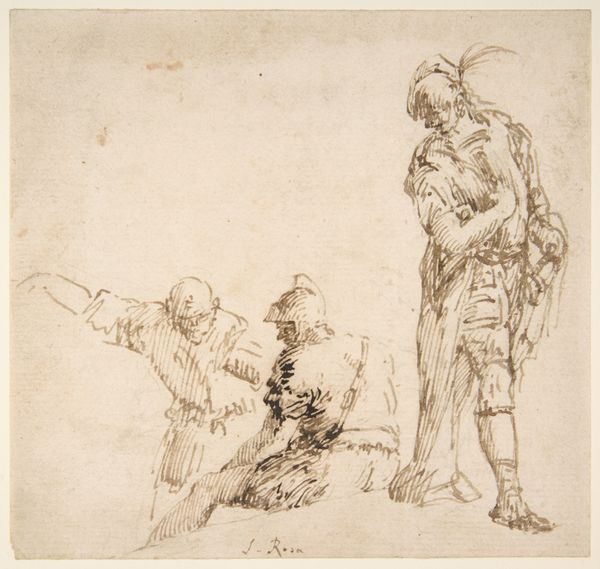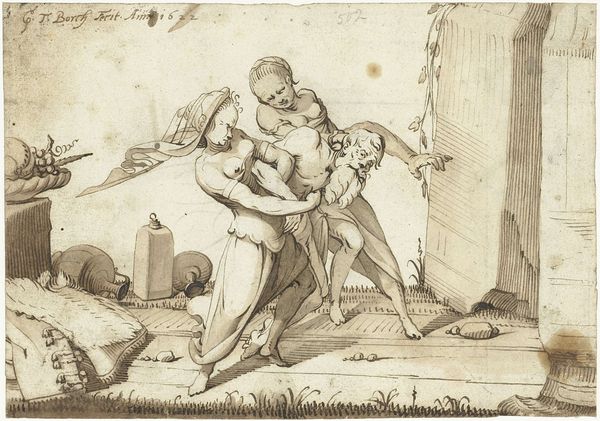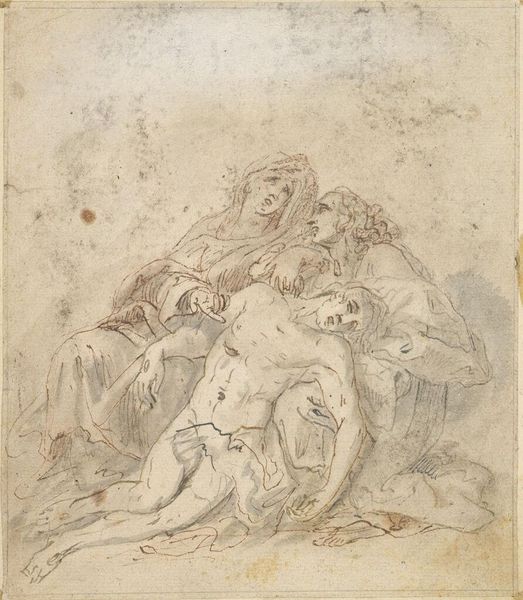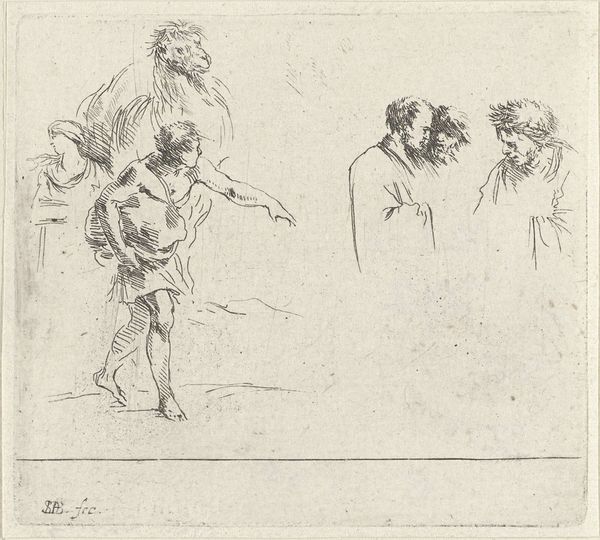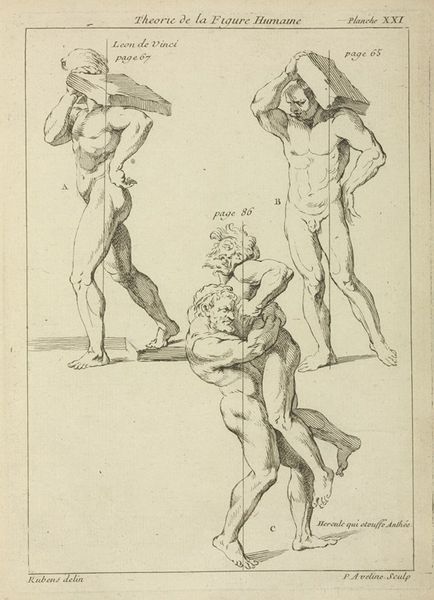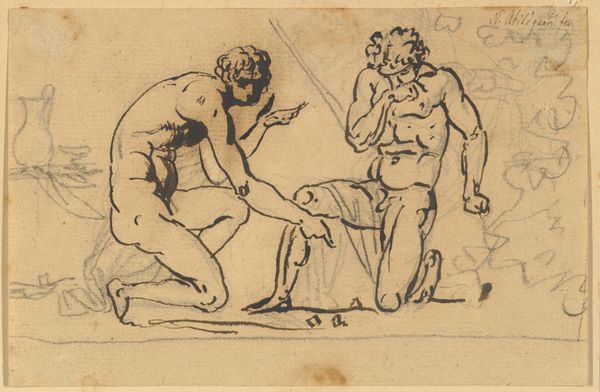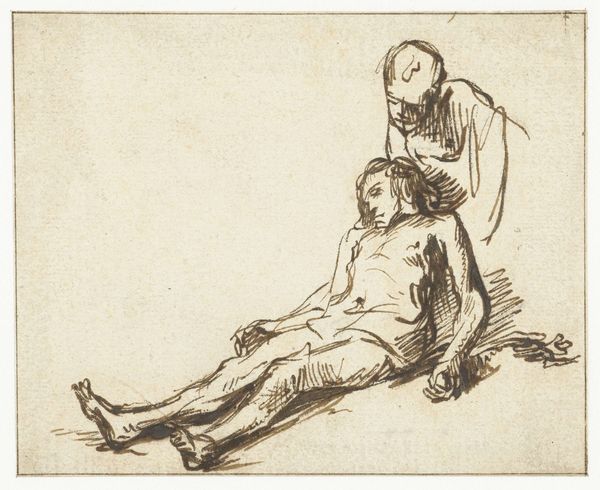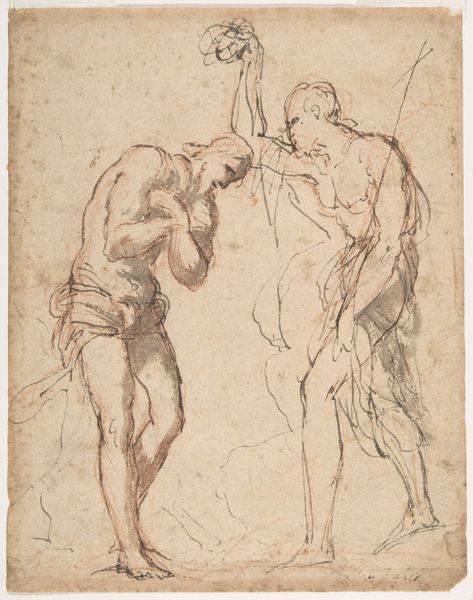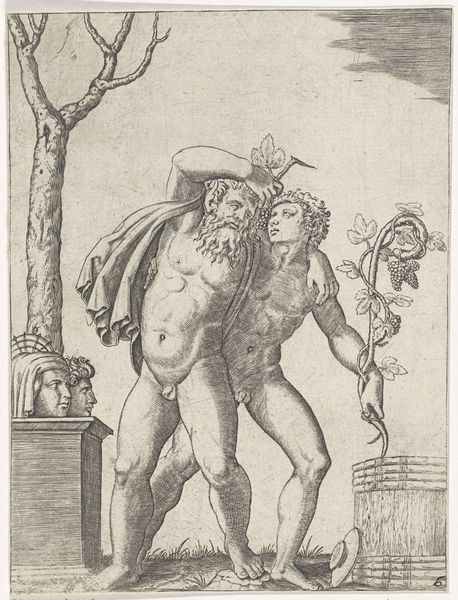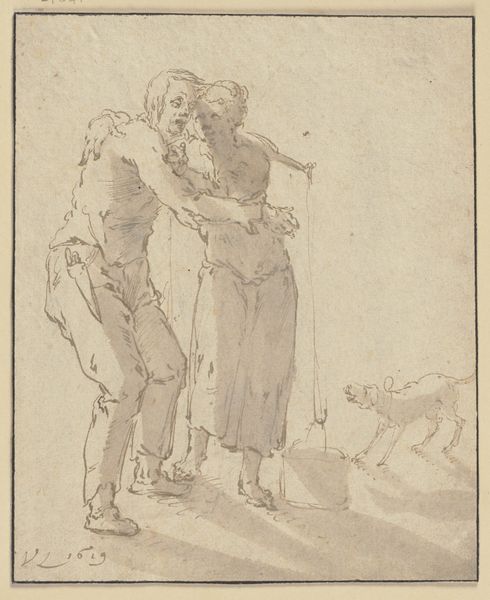
drawing, ink
#
drawing
#
narrative-art
#
baroque
#
pencil sketch
#
figuration
#
ink
#
pencil drawing
#
history-painting
Copyright: Public Domain: Artvee
Editor: This is Guercino's "The Return of the Prodigal Son," from around 1640, created using ink on paper. I find it striking how such minimal materials capture so much emotion and movement. What can you tell me about it? Curator: Consider the materiality: ink, paper, readily available, cheap. Guercino wasn't crafting a precious object; he was engaging in a process. The sketch-like quality shows the labor, the hand's work, not hiding the artistic process. Does the seemingly rushed technique suggest the urgency and accessibility of forgiveness itself? Editor: That’s a fascinating point. The materials certainly downplay any sense of grandeur one might expect from a biblical scene. How does the social context of 17th century Italy influence the production of a drawing like this? Was it meant for private devotion, or wider circulation? Curator: Exactly. Think about patronage. Was this a commission? If so, what demands did the patron make on the artistic labor? Or was it a study, a preparatory work? This relates to value – monetary, but also devotional. Also, consider Guercino's social position and workshop: were there assistants involved in the physical act of drawing? How did they contribute to the creation, the final product we see before us? Editor: It's interesting to think about this drawing not just as a standalone piece, but as a record of production and consumption. Curator: Precisely. Seeing it through this lens reveals hidden aspects, layers of meaning that go beyond mere representation of a biblical scene, or technical virtuosity. Editor: I'll definitely be looking at art with an eye towards process and materials now. Curator: That shift can transform your experience with any piece!
Comments
No comments
Be the first to comment and join the conversation on the ultimate creative platform.
